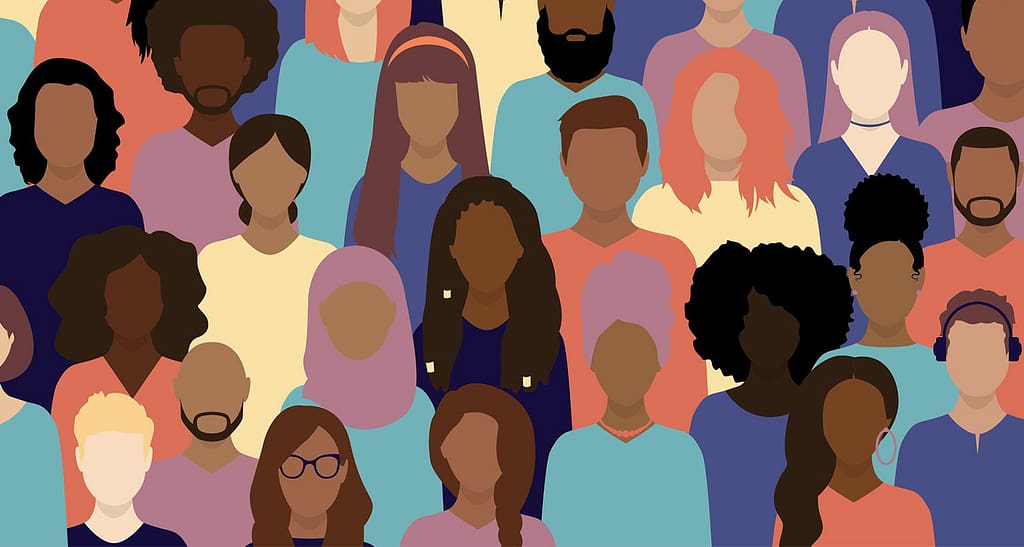
- Greg Davis
- March 16, 2022
Facebook
Twitter
WhatsApp
Telegram
Email
COVID–19: The Impact on Mental Health
The prolonged social isolation in the past several months has resulted in chronic loneliness and depression.

On Friday, February 27, 2021, Sky News’ Parmenter reported that, while coronavirus emergency calls are going down, there has been a drastic increase in ambulance calls related to mental health issues since winter. The prolonged travel restrictions, ban on family and home visitations, social isolations, physical distancing, closed places of worship, etc. have adversely affected people’s mental health.
Several mental health service providers have reported a dramatic increase in depressive symptoms, such as feeling sad, anxious and guilty; low energy, tiredness or fatigue; poor concentration; loss of interest in hobbies, family or social life; aches and pains with no physical basis. Other symptoms may include crying, loss of interest in living and suicidal thoughts.
High levels of uncertainty from job insecurity, decreased financial security, fear of infection or illness of oneself or ones family members, especially for those living overseas, have resulted in anxiety, with symptoms like insomnia, lethargy, irritability, headaches, digestive problems irregular heartbeat and hyperventilation.
Laughter is Medicine
Thankfully, simple behavioural and attitudinal changes can greatly help reduce and prevent mental health problems. Firstly, laughter is a natural healer and a relaxant that calms and improves the mood and boosts the immune system. When we laugh the brain releases serotonin and dopamine which improves mood, lowers stress, and improves our immune system. Moreover, it has no side effects. So go easy on yourself. Learn to laugh every day. Be serious about not taking yourself too seriously. Laugh with others. Laugh at yourself, even if it means goofing around at home with your family, or making faces at yourself in the mirror until you laugh. Try it.
Healthy Lifestyle
Healthy eating, 7 to 8 hours of quality sleep (preferably starting from the first 2 hours before midnight), daily exercise, abstinence from alcohol and other harmful substances don’t only benefit your physical but mental health as well. Having a daily routine and schedule for each day, reducing screen time, taking up a new hobby (learning to bake banana or sourdough bread, or learning to prepare new dishes) can greatly improve your mental health and wellbeing.
Nature is God’s Physician
Have you ever wondered why Jesus went to the Garden of Gethsemane in the hours before suffering, and not to the temple? Ninety minutes in the woods can significantly reduce blood pressure, symptoms of anxiety and depression, and improve diabetes, mental illness, stress and heart disease. Without a doubt, taking a daily walk into the woods not only “increases happiness, but it reduces aggression, ADHD symptoms, improves pain control, and boosts the immune system” (Fleischer2018), (Livini, 2017). If Jesus took a retreat during the most stress-provoking moments in His life on earth, why not you?
“Nature is God’s physician. The pure air, the glad sunshine, the beautiful flowers and trees, the orchards and vineyards, and outdoor exercise amid these surroundings, are health-giving—the elixir of life. Outdoor life is the only medicine that many invalids need. Its influence is powerful to heal sickness caused by fashionable life, a life that weakens and destroys the physical, mental, and spiritual powers. White, Counsel on Health, p.170)
Psychosocial Support
The prolonged social isolation in the past several months has resulted in chronic loneliness and depression. Loneliness is as lethal as smoking 15 cigarettes a day, contributing to 14% of deaths (Morin, 2018) and currently rivalling both obesity and smoking as health risks in the US (Tate, 2018). I define loneliness as the longing to belong and to be emotionally connected to others. To overcome loneliness, invest in our most important relationships, that is, God, family, friends. The benefits of strong social and emotional connections include improved mental health, physical health and wellbeing, better resilience to stress, improved self-esteem, and a sense of security.
Acceptance & Vulnerability
Reach out and talk to family, a trusted friend, pastor, GP, or mental health professional. You would be amazed at how much care, understanding and support are available to you. Jesus acknowledged his struggle, reached out and poured out his inner feelings to the three disciples closest to him(Mark 14:34). Always remember, asking for help is a sign of courage and bravery. Remember this: “I concealed my troubled feelings from my family and friends, fearing that they could not understand me. This was a mistaken course. Had I opened my mind to my mother, she might have instructed, soothed, and encouraged me.” (White p. 135).
Spiritual Support
Prayer works, because God answers prayers. A Harvard study of 5000 teens indicated that regular prayer and participation in weekly religious services, “can powerfully affect their [young people’s] health behaviours, mental health, and overall happiness and well-being.” (Harvard Health, 2018).
When anxiety or depression goes up, everything around us can appear gloomy. Keeping a daily gratitude journal, even the tiny ones, will not only surprise you what the Lord has done, but it will boost your mood, remind you of how great you’re doing, and encourage you to continue to trust in God and keep forging ahead. Lastly, be forgiving, compassionate and gentle with yourself and others. Keep a positive outlook on life. “We have nothing to fear for the future except as we shall forget the way the Lord has led us”.
Greg Davis is a mental health clinician and certified university chaplain. He volunteers for the PCM director of the Irish Mission of Adventists. (email: greg@gregclaydavis.org)
REFERENCES
-
Fleischer, E. (2018, October 15). Doctors in Scotland can now prescribe nature. https://www.weforum.org/agenda/2018/10/doctors-in-scotland-can-now-prescribe-nature
-
Goodman, B. (2020, May 11)). “Faith in Times of Crisis”. https://www.apa.org/topics/covid-19/faith-crisis
-
Harvard Health Publishing (updated 2020, July 6) Understanding the stress response: Chronic activation of this survival mechanism impairs health. https://www.health.harvard.edu/staying-healthy/understanding-the-stress-response
Livini, E. (2017, March 23). The Japanese practice of ‘forest bathing’ is scientifically proven to be good for you. https://www.weforum.org/agenda/2017/03/the-japanese-practice-of-forest-bathing-is-scientificially-proven-to-be-good-for-you
-
Morin, A.(2018, June 18) Loneliness Is as Lethal As Smoking 15 Cigarettes Per Day. Inc.com https://www.inc.com/amy-morin/americas-loneliness-epidemic-is-more-lethal-than-smoking-heres-what-you-can-do-to-combat-isolation.html
-
Parmenter, T (2017, February 27) COVID-19: Emergency coronavirus calls are slowing but wave of poor mental health is taking off. https://news.sky.com/story/covid-19-emergency-coronavirus-calls-are-slowing-but-wave-of-poor-mental-health-is-taking-off-12229739
-
Tate, N. (2018, May 4). “Loneliness Rivals Obesity, Smoking as Health Risk. https://www.webmd.com/balance/news/20180504/loneliness-rivals-obesity-smoking-as-health-risk
-
White, EG(1923). Counsel of Health, p. 170. https://m.egwwritings.org/en/book/20.858#863
-
White, EG(1880). Life Sketches of James White and Ellen G. White p. 135
-
White, EG(1893) God’s Remnant Church (The Remnant Church), p. 18.3. https://m.egwwritings.org/en/search?query=%22we+have+nothing+to+fear+for+the+future%22&type=basic&limit=20

How Should Christians be Different?
September 6, 2023

The Pastoral Caregiver – Bearer of Stories
September 6, 2023

What Takes to be Different?
September 6, 2023

The Beauty of Diversity Within the Body of Christ
September 6, 2023

The Butterfly, an Object Lesson of Transformation
September 6, 2023

Mitigating the Risks of Cultural Compromises
September 6, 2023

Embracing Christ-Centered Counterculture
September 6, 2023








